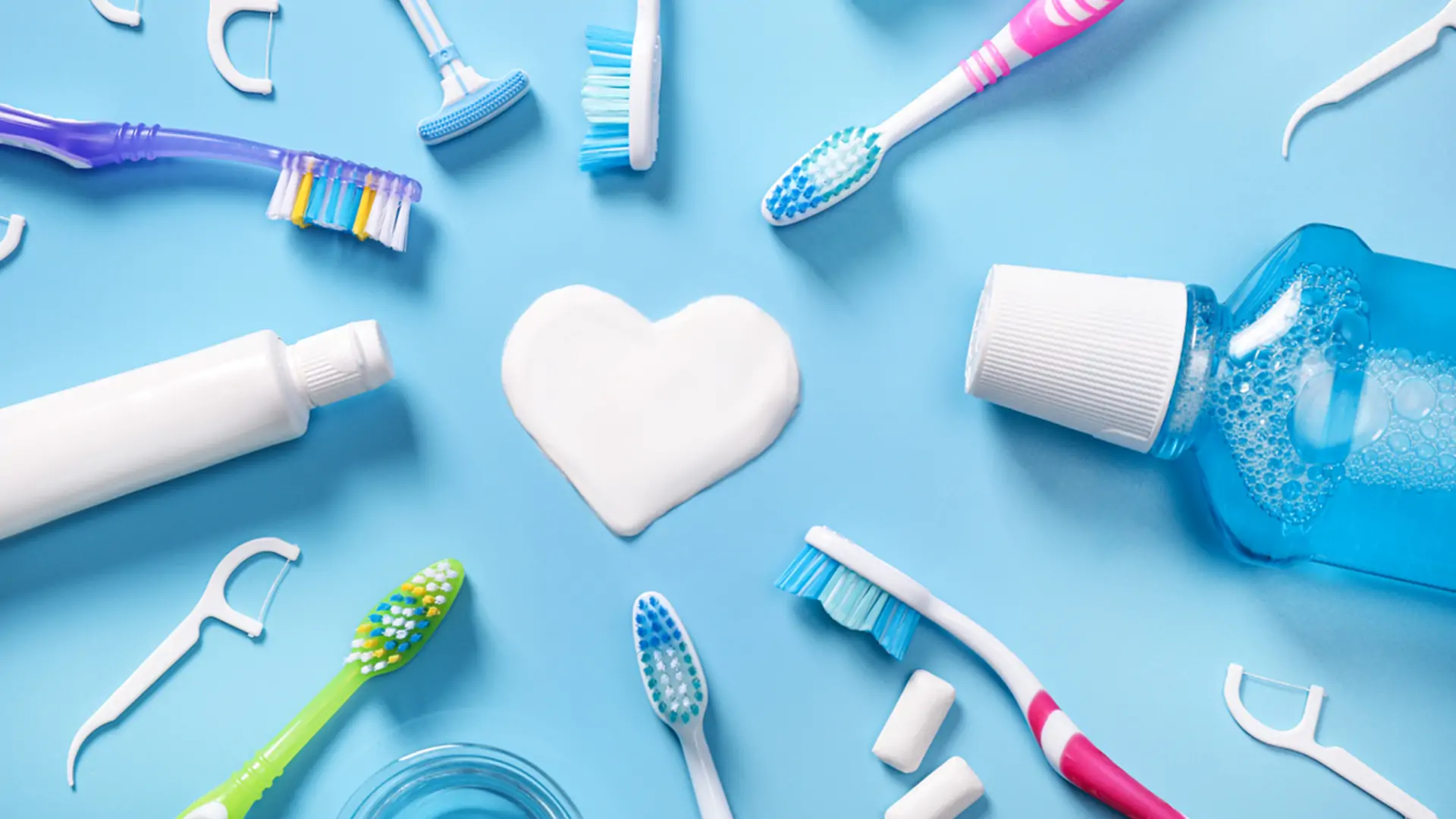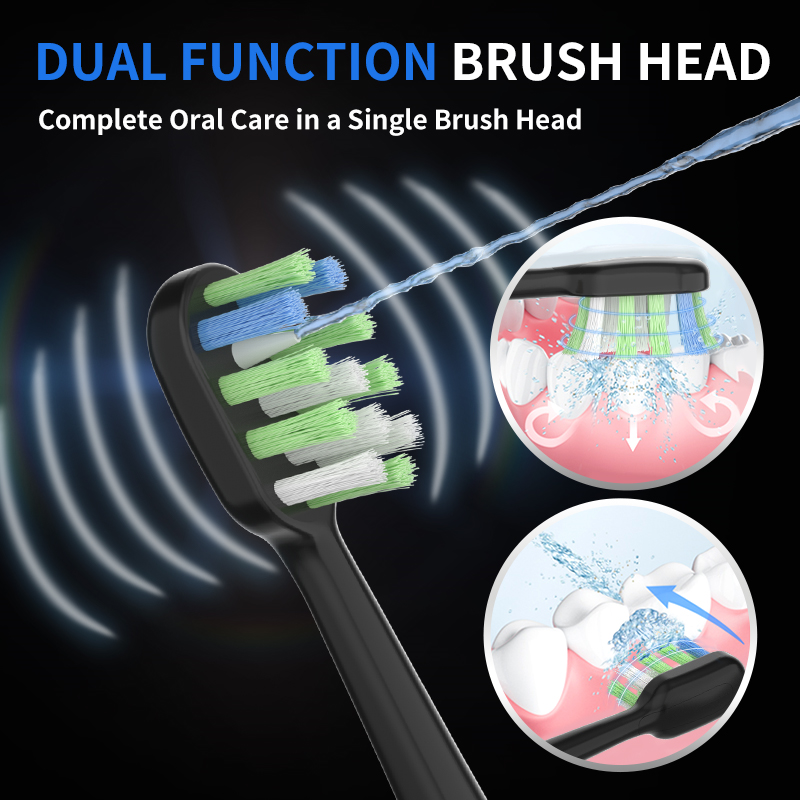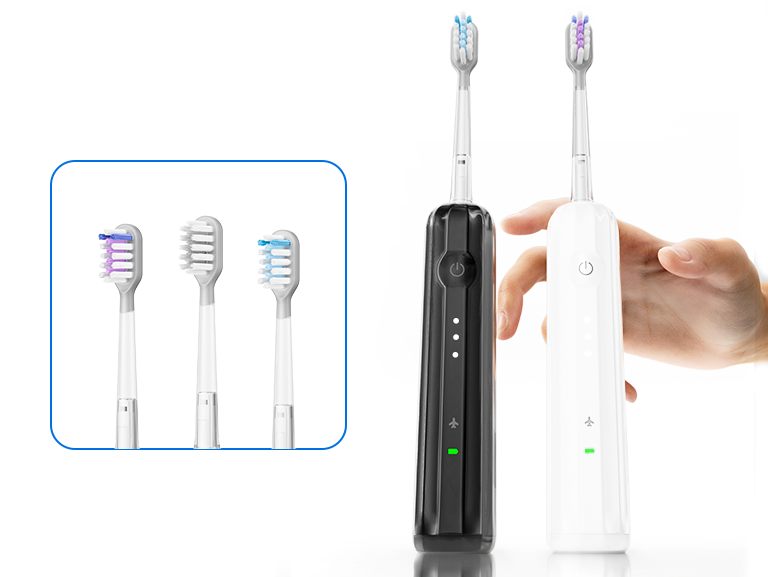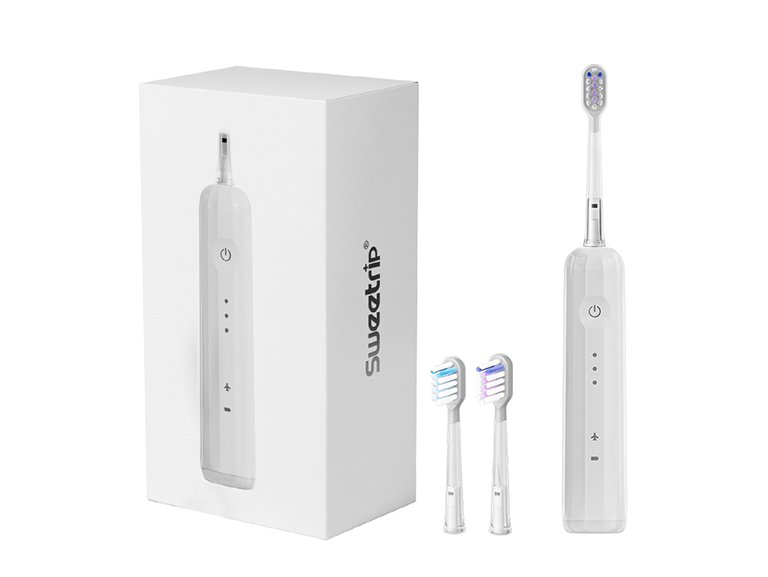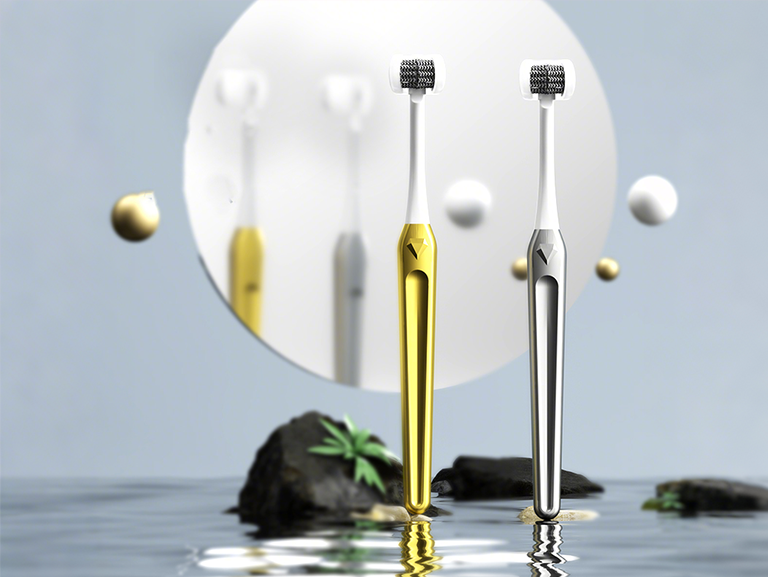A BAD TASTE IN YOUR MOUTH, is called halitosis, or simply bad breath, refers to the unpleasant odor emitted during oral respiration. It is a condition that can affect anyone, although it tends to occur more frequently with increasing age. In this article, we will explain the causes and prevention of bad breath.
From a societal perspective, bad breath can have negative impacts on interpersonal relationships as it may cause disgust in conversation partners. Additionally, patients with bad breath may experience self-consciousness, leading to psychological disorders and social anxiety.
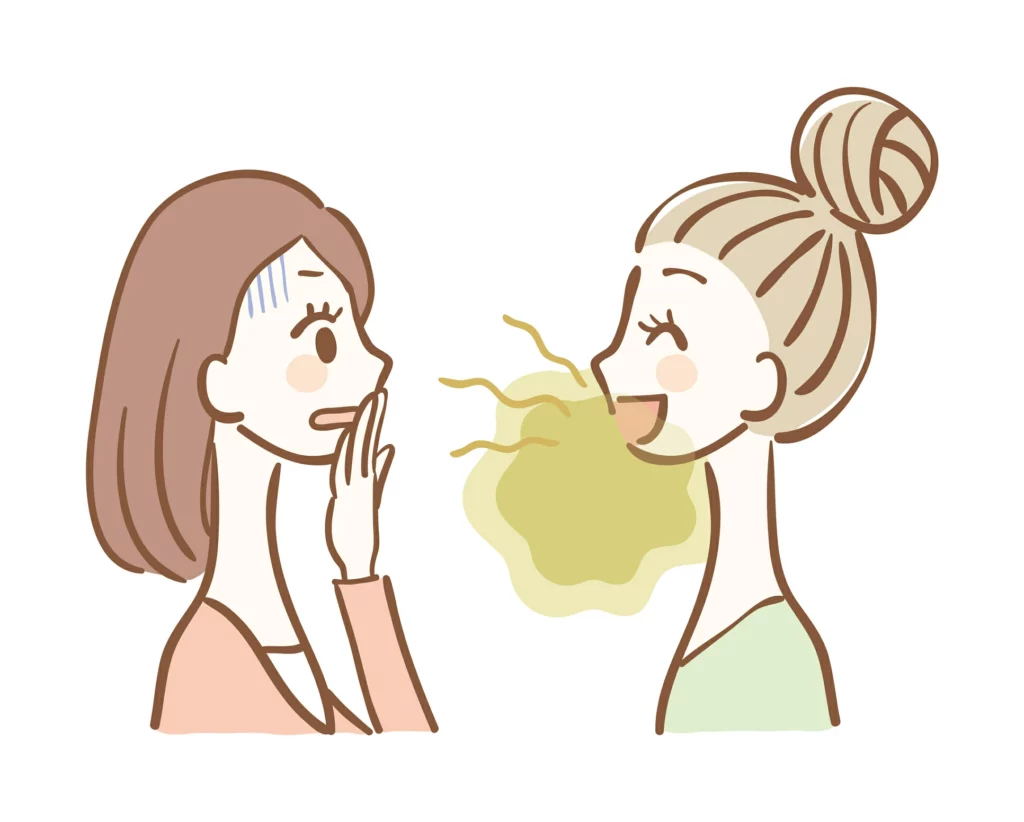
Bad breath troubles an estimated 50% of people to varying degrees. Inadequate oral hygiene is the most common culprit, accounting for approximately 90% of cases. In such instances, it is necessary to choose appropriate oral care products such as toothbrushes, toothpaste, and dental floss, improve personal hygiene, and seek assistance from a dentist.
However, in some cases, bad breath may result from hormonal imbalances or specific medical conditions, requiring consultation with an internal medicine physician.
Causes:
There are numerous possible causes of bad breath. In most cases (approximately 90%), the odor originates directly from the oral cavity. The most common cause is the accumulation of food residues, which are metabolized by bacteria responsible for dental plaque found on teeth and the tongue due to poor oral hygiene.
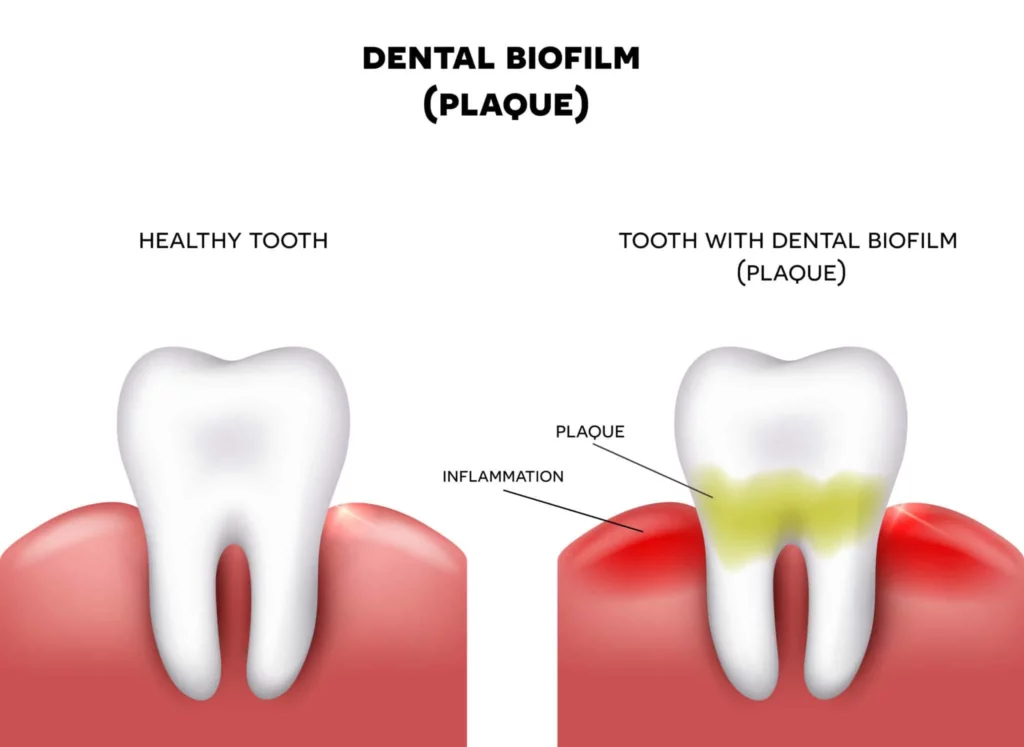
Dental calculus and plaque contribute to bad breath:
Dental calculus and plaque harbor a large number of anaerobic bacteria and provide a protective film, making it difficult for these deposits to be washed away by saliva. Anaerobic bacteria break down food residues within these deposits, resulting in the production of unpleasant odors. Furthermore, a thick coating of tongue plaque is also prone to hosting abundant anaerobic bacteria, which is another major cause of bad breath.
Periodontal disease leads to severe bad breath. Dental cavities, retained roots, and crowns easily become reservoirs for food residues. Fermentation of these residues by anaerobic bacteria produces foul-smelling gases. Generally, patients with periodontitis and gingivitis experience more severe bad breath. Inflammation of the gums often leads to bleeding and pus formation, which, when mixed with saliva, produces a putrid and fishy odor due to bacterial action.
Now you see the causes and prevention of bad breath.
Remedies:
For bad breath caused by inadequate oral hygiene and dietary habits, treatment can be done at home. Here are some remedies:
- Maintain good oral hygiene habits, brushing teeth and cleaning the tongue at least twice a day, and using dental floss at least once daily.
- Avoid tobacco products.
- Avoid consuming strongly flavored foods such as garlic, onions, and coffee.
- Avoid alcoholic beverages.
- Chew mint or parsley to temporarily alleviate bad breath.
How to Choose the Right Toothbrush for You?
Bristle Type, Brush Head Size, Handle Design, Manual vs. Electric, Other Additional Features and preferences
Facing the dazzling array of products on the market and the overwhelming exaggerated advertisements, will you feel at a loss of what to do?
OralGos® – A Royal Legacy of Oral Care
With a heritage dating back to 1999, OralGos® is a British dental care brand steeped in royalty and boasting over 25 years of expertise in the development, design, and production of oral care products.
Manual Toothbrushes for Optimal Oral Hygiene
For those with established brushing habits and proper technique, manual toothbrushes can effectively clean teeth.
We offer a diverse range of manual toothbrushes specifically designed for children, women, men, those seeking deep cleaning, and individuals with sensitive gums prone to bleeding.
Each toothbrush features meticulously crafted brush heads, ergonomically designed handles, and customizable aesthetics to suit your unique preferences.
Electric Toothbrushes for Enhanced Cleaning Power
For those with less-than-ideal brushing habits or seeking superior cleaning power, we have developed a collection of precision-engineered, aesthetically pleasing, and intelligent electric toothbrushes. Innovative 45° oscillation and vibration motor provide a more comfortable and thorough brushing experience.
Our electric toothbrushes have garnered rave reviews from users worldwide.
Contact our sales representatives today for personalized product recommendations tailored to your specific needs.
When should you see a dentist?
Now that you see the causes and prevention of bad breath, you should do something!
If you have bad breath, first assess your oral hygiene habits and make changes such as brushing after meals, cleaning the tongue, using dental floss, and staying hydrated. If you still experience bad breath after implementing these changes, it is advisable to seek medical attention.
Experts distinguish severe chronic bad breath that is not solely of oral origin by its ‘pungent putrid odor.’ They indicate these cases may be caused by other organ-related diseases. For example, patients with chronic gastric diseases or gastroesophageal reflux often have breath that smells sour. Diabetic patients may exhale an odor similar to rotten apples, while liver disease patients typically have a foul odor.” If your dentist suspects that your worsening bad breath is due to more serious issues, they may recommend seeking assistance from other specialized doctors to identify the underlying causes of the odor.
In conclusion
To reduce or prevent bad breath:
– Brush your teeth at least twice a day, especially after meals, and use a toothpaste that contains fluoride or antibacterial ingredients, which research shows can help relieve bad breath.
– Floss at least once a day. Proper flossing can help control the symptoms of bad breath by removing food particles and plaque from between the teeth.
– Clean your tongue thoroughly to curb bad breath as it is a breeding ground for bacteria.
– Avoid excessive dryness of the mouth. In addition to avoiding tobacco products, staying hydrated by drinking plenty of water and chewing sugarless gum can help stimulate saliva production and reduce dry mouth, which can lead to bad breath.
– Avoid foods with strong odors, such as garlic and onions, as they can linger in the mouth and cause bad breath.
– Visit your dentist regularly for professional cleanings and checkups to ensure your oral health is in good condition. – If you continue to have bad breath despite maintaining good oral hygiene, talk to your dentist or healthcare professional to rule out any underlying health conditions that may be causing the problem.
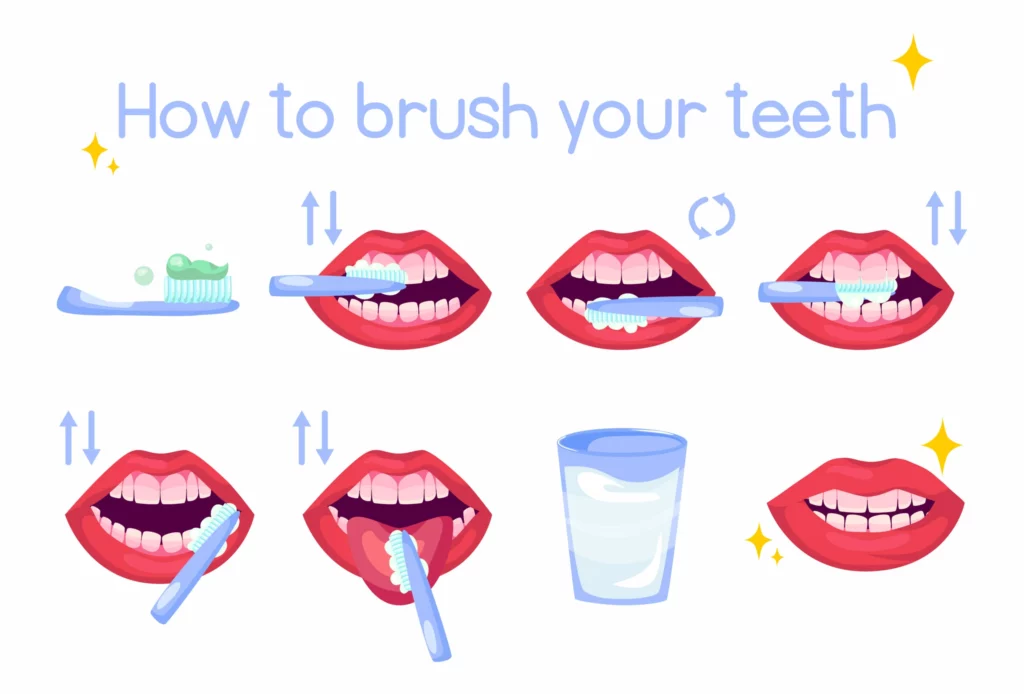
Remember, practicing good oral hygiene and addressing any underlying causes are keys to preventing and treating bad breath.

